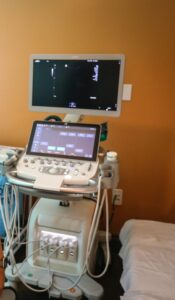
How are fibroids diagnosed? And when should you start worrying about these growths? Well, during their lifetime, most women will develop uterine fibroids. And they are a type of benign tumor that can wreak havoc on your general and sexual health. In recognition of this widespread problem, Dr. Oz (before he ran for the government) actually devoted entire episodes of his daytime talk show to discussing this widespread female health problem.
Now, here's a shocking statistic you don't have to be a TV doctor to understand. As it turns out, 70% of women are affected by fibroids, but most don’t know that they have a problem. How could that be? The reason is simple: too many women don't know what symptoms they need to look for, or how to assess their fibroid risk.
Fibroids are not cancerous, but they are abnormal growths in your uterus. Typically, they develop in pre-menopausal women. They grow larger thanks to estrogen stimulation, which means pregnancy can speed up fibroid growth. Women with fibroids can have normal pregnancies, but they must be monitored carefully. Some women with fibroids will have difficulty conceiving or carrying a baby to term.
Unfortunately, many women with fibroids experience delayed diagnoses because they are embarrassed to talk about menstrual disorders. Even worse? When they do talk about their symptoms, too many doctors dismiss their concerns and just say it's a normal part of being a woman.
Your doctors can detect fibroid warning signs during a routine pelvic exam; if your uterus feels unusual, especially if it seems larger than normal, you may have fibroids. In some cases, though, smaller fibroids will go undetected during a physical exam. At that point, your doctor may recommend a pelvic ultrasound to complete your diagnosis.
Even after detecting fibroids, you may need additional testing to learn more about the size and location of these growths. (That information can help determine your treatment options.) Some of the diagnostic tools include:
After diagnosing fibroids, you may also need blood tests to see if you have anemia. This is important, since heavy periods are a fibroid symptom that could leave you with this condition. But it's not the only symptom you have to worry about with fibroids.
Fibroids can push on your bladder, making you pee much more or less than you normally do. Fibroids can also make your period flow much heavier than usual, and they can cause you to feel pressure and pain in your pelvic region. Many women with fibroids also experience back pain.
Women whose mom's had fibroids, overweight women and African-American women all have elevated fibroid risks. Of course, it's important to note that not all at-risk women will develop fibroids. In the same way, women with no known risk factors may end up dealing with fibroids.
Regardless of your history, it's important to remember that fibroids don't have to change your life. With today's advancements in interventional radiology, fibroids can be treated without surgery. You DON'T need to have a hysterectomy to beat the pain. They key to treating fibroids is to research all your treatment options and to make sure you choose the option that works best for your lifestyle and future family goals. Here at our Houston area fibroid clinics, we offer minimally invasive fibroid treatments that can help resolve symptoms without surgery. We invite you to schedule a consultation today to see if you are a good candidate for this treatment option, Uterine Fibroid Embolization (UFE for short!)

Scheduling
Please contact our dedicated specialists to schedule a consultation today.
2024 Houston Fibroids. All rights reserved. Website Design by Healthcare Success